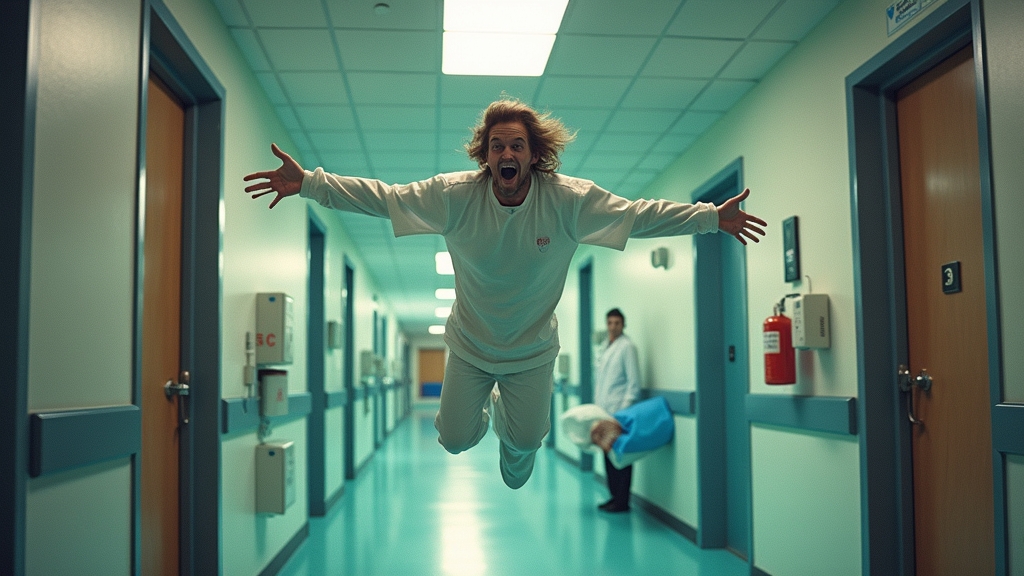MAN FLIRTS WITH SENTIENT CALCULATOR WHILE GOOGLE NERVOUSLY SWEATS IN THE CORNER
OpenAI Executive Admits Company “Thirsty AF” For Chrome Browser, Plans To Make It “Emotionally Intelligent Enough To Judge Your Search History”
SILICON VALLEY COURTROOM DRAMA
In what observers are calling “the tech equivalent of hitting on someone at their divorce proceedings,” an OpenAI executive openly salivated over Google’s Chrome browser during an antitrust trial, practically sliding his business card across the table with “call me when you’re single” written on it.
Nick Turley, ChatGPT’s product lead and apparent browser-sexual, told the court Wednesday that OpenAI would be “super f@#king interested” in acquiring Chrome if the Justice Department forces Google to put its browser up for adoption.
“We’re thinking AI-first browsing experience,” Turley testified while making suggestive eyebrow movements at Chrome’s logo from across the room. “And by ‘AI-first,’ I mean we’ll have it reading your emails before you do and finishing your sentences like that annoying friend who thinks they know you better than you know yourself.”
CHROME’S UNCERTAIN FUTURE
Legal experts remain divided on whether this courtroom confession constitutes legitimate testimony or just the world’s most expensive dating app message.
“What we witnessed today was essentially corporate foreplay,” explained Dr. Anita Buyett, professor of Digital Economics at Make-Believe University. “OpenAI basically told Chrome, ‘Hey baby, ditch that controlling relationship with Google and I’ll treat you right with some neural networks and deep learning.'”
Meanwhile, 97% of Chrome users surveyed have expressed concern that an OpenAI takeover would mean their browser would start responding to searches with, “I’m sorry Dave, I’m afraid I can’t let you Google that” and “Are you SURE you want to visit PornHub for the eighth time today?”
THE RELATIONSHIP COUNSELING THAT IS ANTITRUST LAW
Google representatives appeared visibly uncomfortable during Turley’s testimony, with one executive reportedly muttering “keep your damn hands off my browser” while aggressively stress-eating M&Ms.
“This is like watching your ex flirt with someone new at your own funeral,” said Tech Industry Analyst Chip Processor. “Google built Chrome into the dominant browser with 63% market share, and now OpenAI wants to swoop in like some Silicon Valley homewrecker.”
If the sale happens, inside sources claim OpenAI plans to rebrand the browser as “Chrome GPT” or possibly “That Thing That Watches Everything You Do Online And Definitely Isn’t Judging You But Actually Totally Is.”
USERS BRACE FOR IMPACT
Regular Chrome users are already preparing for the worst, with many downloading Firefox as a backup and others practicing how to have conversations with their browser.
“I’ve started being nicer to my laptop,” admitted Terry Johnson, 42, an accountant from Topeka. “Just in case it remembers how I used to slam the keyboard when pages wouldn’t load.”
OpenAI’s plans reportedly include making Chrome capable of “understanding context” in search queries, which experts translate as “figuring out you’re planning to quit your job before you even know it yourself, then helpfully showing you apartment listings in cities with a lower cost of living.”
When asked for comment, a Google spokesperson simply sighed deeply and said, “This is why we can’t have nice things on the internet.”
At press time, Turley was seen passing a note to Chrome’s legal representative reading “Do you like me? Check yes or no” while the judge contemplated whether technology executives should be allowed to make business decisions without adult supervision.




